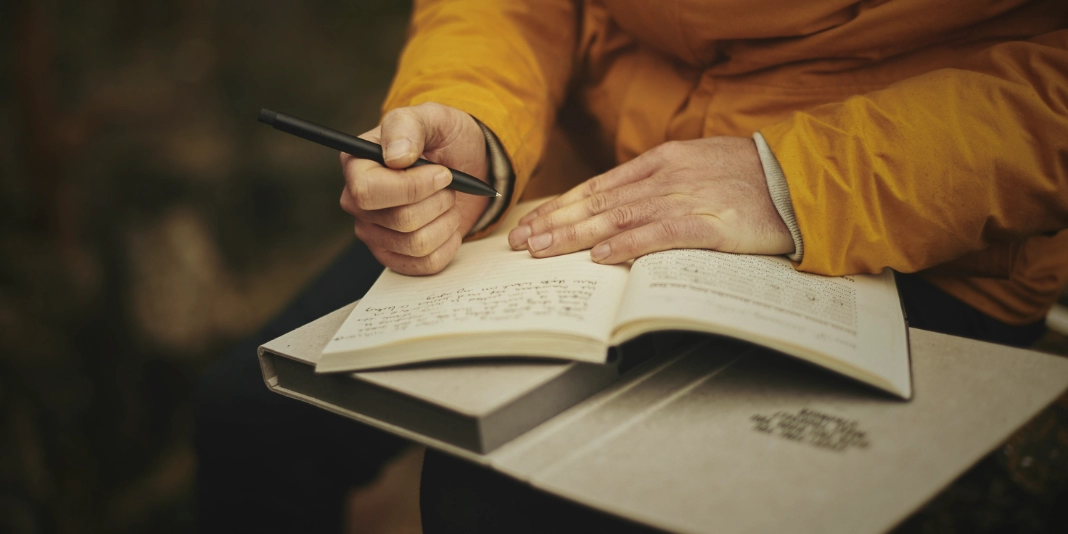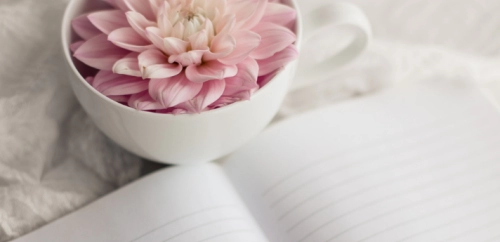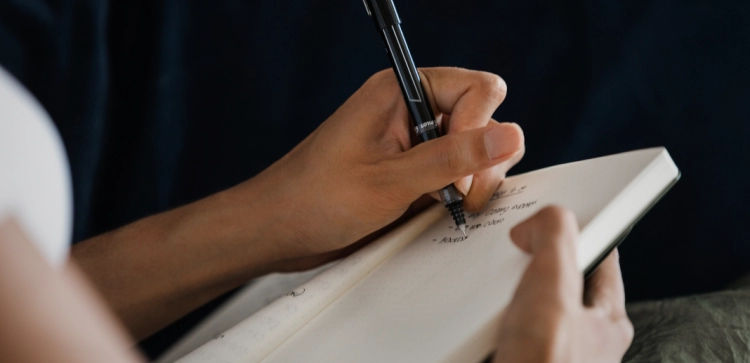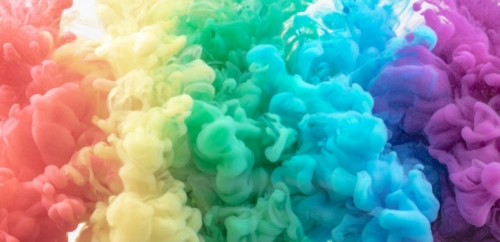The Essential Guide To Journaling: Dos, Don'ts, And Tips For Success

Journaling can be a powerful and therapeutic tool for self reflection, personal growth, and for reducing stress and anxiety. However, it is also very easy to make mistakes that can end up undermining the effectiveness of your journaling practice.
In this article, we will go over these mistakes. We will try to make some sense out of the things that you may be doing wrong that could be hurting the effectiveness of your journaling practice. We will also cover things that you could do that can help you get the most out of journaling.
- The Benefits Of Journaling
- Personalizing Your Journaling Practice: Finding What Works Best For You
- Maximizing The Benefits Of Journaling: Essential Tips And Strategies
- Choose A Time And Place That Works For You
- Be Consistent And Set Aside Regular Time For Journaling
- Find A Comfortable And Private Space To Write
- Find A Journal Or Notebook That You Enjoy Using
- Reflect And Analyze Your Thoughts And Feelings About Events And Experiences
- How To Journal Effectively: Mistakes To Avoid
- Avoid Judging What You Write And Filling Yourself With Self-pity Or Self-loathing
- Don't Copy Writing Styles That Don't Suit You
- Don't Stick To A Journaling Time That Doesn't Work For You
- Don't Overdo Things Like Keeping Multiple Journals Or Decorating Excessively
- Don't Put Too Much Pressure On Yourself To Write Or Make Every Entry Perfect
- Don't Treat Your Journal Like A Daily Diary
- Avoid Only Writing In Your Journal When You Have Something Profound To Say
- In Conclusion: The Three Things To Keep In Mind
- The Importance Of Finding A Journaling Practice That Works For You
- Avoiding Common Journaling Mistakes
- Encouragement To Keep Exploring And Learning Through Journaling
- Community Questions · 0
The benefits of journaling
Journaling has many benefits, such as improving mental health, promoting self-discovery, reducing and managing stress and anxiety, and helping with problem-solving.
It can also help get your creativity flowing, and can give you a sense of accomplishment and motivation.
Journaling is a way to reflect on your thoughts and experiences, and to better understand them. It helps slow down your thought process to give you enough time to actually reflect on your different thoughts, experiences, and emotions, leading to personal growth, and increased self-esteem.
Personalizing Your Journaling Practice: Finding What Works Best for You
Journaling is not a one size fits all kind of thing. Much like mindfulness and meditation, and even exercise, the same journaling routing does not fit everyone, and each person should find what works best for them.
Some people benefit greatly from journaling first thing in the morning. This can help set them up for a much better day to come by reflecting on the past day, and setting up goals and expectations from the day ahead.
For others, the ideal time for them to journal is right before bed, allowing them to reflect on the day that has passed, and ease their mind from any of the stress and anxiety caused by the day.
Finding the right time for journaling, and the right journaling method for you, is crucial for having a successful and effective journaling practice.
To figure this out, it is not only important to understand the different types and methods of journaling, but, to also experiment with them and find what works best for you. Everyone has their own schedules, and everyone has their own reasons for journaling. Try out different times, experiment with different types of journaling and different prompts.
To help guide you in the right direction, we have gathered a few things that you should try to avoid when journaling, and a few things that can help you make your practice more efficient and effective.
Maximizing the benefits of journaling: Essential tips and strategies
Journaling can be a powerful tool for personal growth and self-discovery, but it's important to approach it with the right mindset, expectations, and techniques in order to maximize its benefits. Here are some essential tips and strategies for getting the most out of your journaling practice:
Choose a time and place that works for you
It's essential to find a time and place that is convenient and comfortable for you to journal. This could be first thing in the morning, right before bed, or during your lunch break at work. It could be at home, in a quiet café, or at a park bench. Experiment with different options to find what works best for you.
Be consistent and set aside regular time for journaling
Consistency is key when it comes to successful and effective journaling practice. Set aside regular time in your schedule to journal, whether it's once a day, once a week, or once a month. This will help you develop a habit and make journaling a consistent part of your routine.
Find a comfortable and private space to write
Your journal is a personal and private place to write, so it's important to find a space that is comfortable and private as well. This could be a quiet corner of your home, a cozy coffee shop, or a secluded spot in nature.
Find a journal or notebook that you enjoy using
Your journal is a tool for self-expression, so it's important to find a journal or notebook that you enjoy using. This could be a fancy journal, a simple notebook, or even a digital journal on your phone or computer if you find that to be a comfortable place to journal in.
Reflect and analyze your thoughts and feelings about events and experiences
Journaling is a great opportunity to reflect on and analyze your thoughts and feelings about events and experiences. Take the time to write about your emotions, insights, and observations, and consider how these things may have impacted you or your relationships. This can help you gain a deeper understanding of yourself and your experiences.
How to journal effectively: mistakes to avoid
Though journaling can be very effective, there are some common mistakes people make when approaching journaling and incorporating a journaling practice into their lives. Here is a list of common mistakes to avoid:
Avoid judging what you write and filling yourself with self-pity or self-loathing
Remember that your journal is a private space for you to express and explore your thoughts and feelings without fear of judgment or criticism. Don’t worry about what you write, how you write it, or if it is grammatically correct or not, that is not the point of journaling. The point is to express and to explore yourself and your mind.
Don't copy writing styles that don't suit you
You don't need to emulate someone else's writing style to journal effectively. Find a style that feels natural and authentic for you. What works for others may not work for you.
Don't stick to a journaling time that doesn't work for you
Find a time that fits into your schedule and feels comfortable for you, whether it's first thing in the morning, right before bed, or somewhere in between. Forcing yourself to journal at a time that is not right for you can negatively impact the effectiveness of your journaling practice.
Don't overdo things like keeping multiple journals or decorating excessively
It's okay to have a few different journals for different purposes, but don't get overwhelmed or bogged down by too many journals or by trying to make each entry a work of art. Keep in mind the reason you are journaling and the purpose of a journaling practice.
Don't put too much pressure on yourself to write or make every entry perfect
Remember that journaling is a personal practice and there are no hard and fast rules. Don't worry about spelling, grammar, or the "correct" way to journal. If you have enough to write half a page, don’t try to force yourself to write more. Just let your thoughts and feelings flow freely, however they come, and at what ever length they come in.
Don't treat your journal like a daily diary
You don't have to write in it every day, and you don't have to write about everything that happened in a given day. Use your journal as a space to reflect on your thoughts and feelings, rather than as a strict record of your daily activities. Trying to force yourself to journal every day can exhaust you and can cause you to be burnt out by the practice.
Avoid only writing in your journal when you have something profound to say
It's okay to write about mundane or everyday things, too. The goal of journaling is to explore your thoughts and feelings, not to come up with grand revelations every time you sit down to write. You will be surprised what clarity and self-discovery can come from writing about your morning coffee or about a simple interaction with someone.
In Conclusion: The Three Things To Keep In Mind
To summarize this article, here are three main things to keep in mind to have a successful and effective journaling practice:
The importance of finding a journaling practice that works for you
Explore and experiment with the different journaling methods, and try them at different times. What works for some does not necessarily work for everyone. Finding what works best for you can ensure that you have a successful and effective journaling practice.
Avoiding common journaling mistakes
Though journaling sounds simple, there are a few things that can hurt your practice and reduce its effectiveness. Keeping the mistakes pointed out in this article in mind and avoiding them can help you increase your practices effectiveness. It is also important to not stress over these mistakes as well. If you make a mistake, it is ok, do not stress over it, just continue on and do your best. Try to incorporate the list of suggestions mentioned above into your practice.
Encouragement to keep exploring and learning through journaling
As you continue your journaling practice, you will gain insight into your patterns of thought, your behavior, your values, and beliefs, and how you react and deal with situations and events in your life. This self-discovery can be empowering and help you make positive changes in your life. Journaling can also provide a sense of clarity, and help you work through problems and challenges you may face. Don’t be afraid to explore the different methods of journaling, and to continue learning from the practice.















